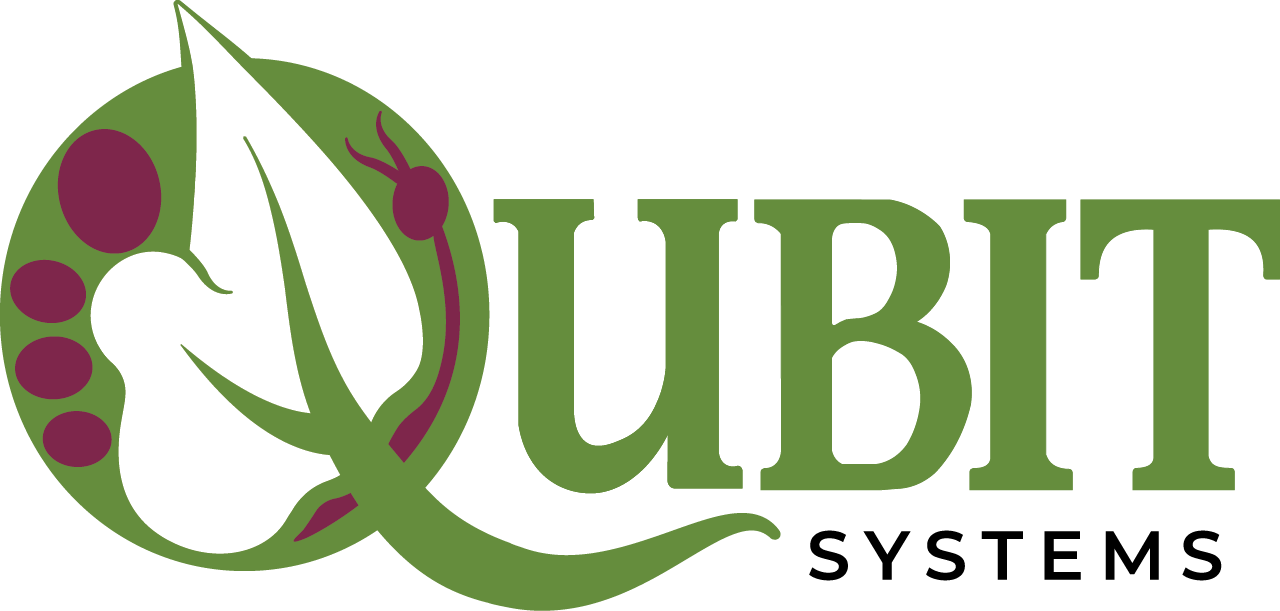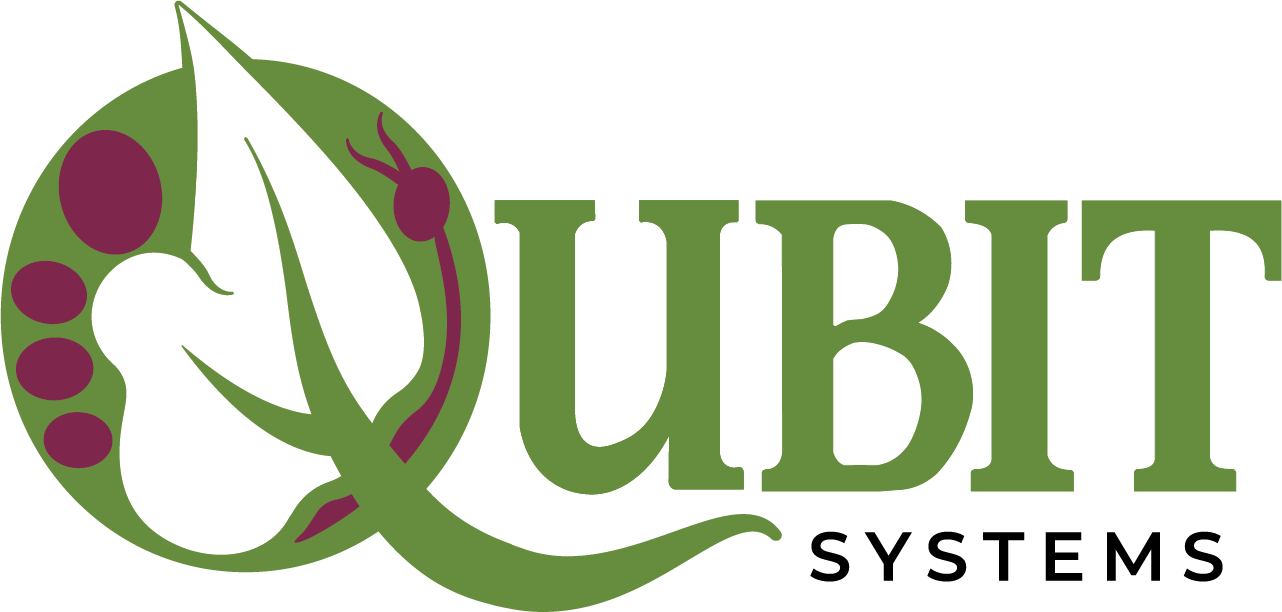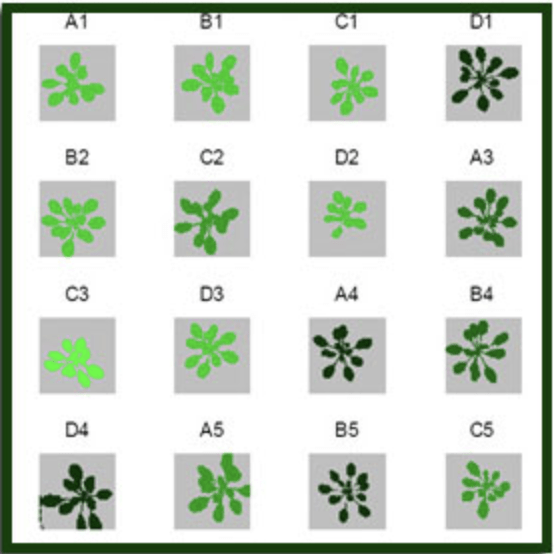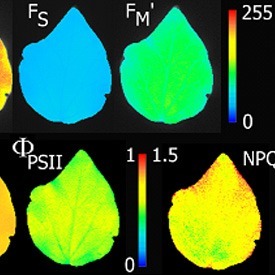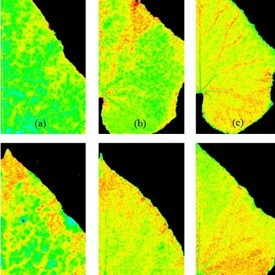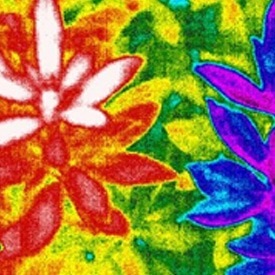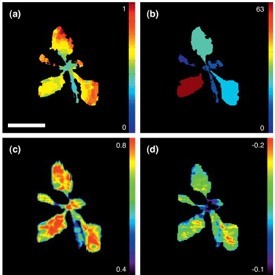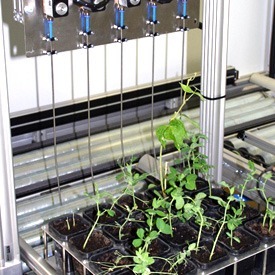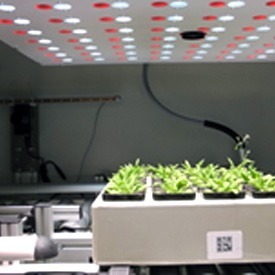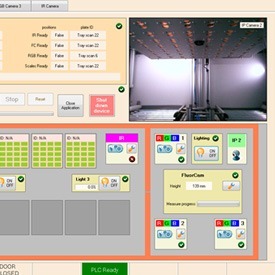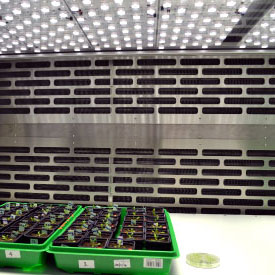The PlantScreenTM Compact System is conveyer-based integrated robotic solution designed for digital phenotyping and cultivation of small and mid-size scale plants up to 50 cm in height (e.g. Arabidopsis, Strawberries, Turfgrass, Soybean, Tobacco, Corn seedlings, etc.). The Compact system has an internal conveyor that may be attached to an external conveyor, if required. Potted plants may be transported individually, or multiple pots may be arranged in trays. Trays can be customized and adapted to carry different numbers and types of samples, such as multiple plants in pots, in vitro samples in multiwell plates etc. Numerous species may be studied, or a single species may be studied throughout its growth cycle. Multi-sensor digital data may be acquired from top and side views.

Qubit Phenomics offers numerous techniques for non-invasive measurements of plant physiological processes, many of which have been integrated into the PlantScreen™ Compact System, such as:
- RGB digital color imaging
- Kinetic chlorophyll fluorescence Imaging
- Hyperspectral Imaging in visible and/or near-infrared region
- Thermal Imaging
- 3D Scanning and modelling
- Near Infra-Red (NIR) Imaging
These imaging sensors are housed in closed imaging stations with automatic doors for maintaining a controlled light environment using dedicated illumination sources. Imaging stations may be equipped with a platform for lifting and rotating plants through 360 degrees, with images taken from multiple angles.

The PlantScreenTM Compact System is designed for automated plant handling, plant imaging and precise irrigation of individual plants or groups of plants. Configuration may be optimized to fit within the clients existing controlled environment and/or greenhouse infrastructure and may be customized for different throughput, and chosen range of imaging stations according to research needs.
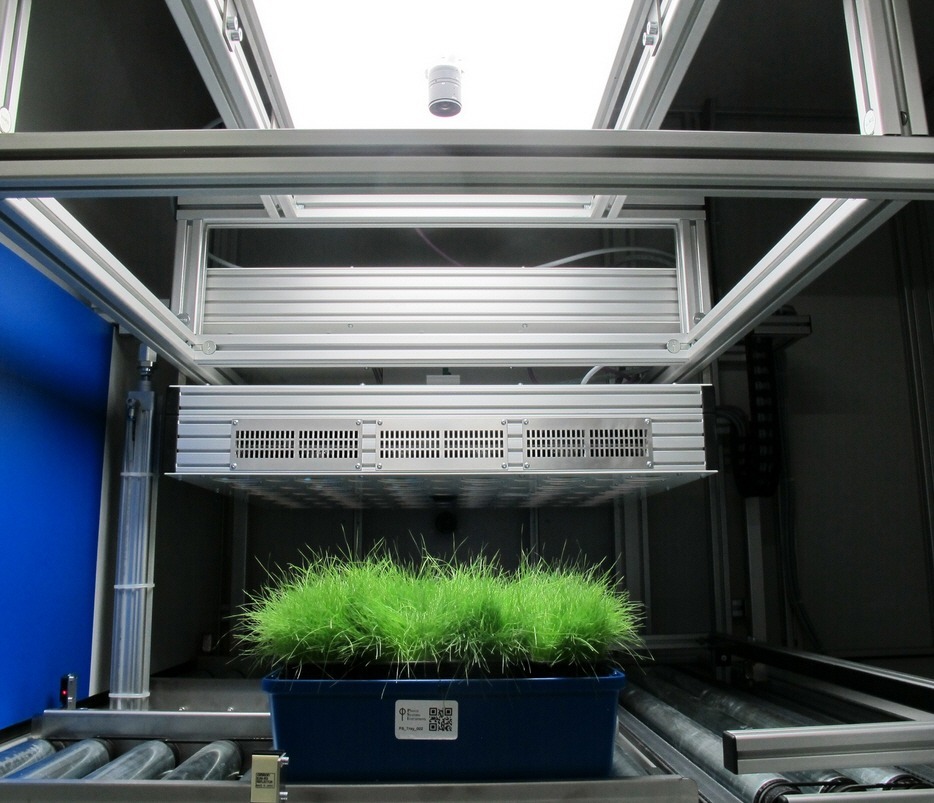
The PlantScreenTM Compact System incorporates an acclimatization chamber that may be used to equilibrate plants under controlled conditions, or for plant cultivation. The transportation system delivers plants to the imaging stations under software control, and the user may define protocols for which imaging stations are used, and how watering is delivered. An external transportation system and/or loading station can be added to move plants between a cultivation area and the imaging cabinet. The combined weighing/watering station may be located within the cabinet and/or within the otional external conveyor, for precise irrigation and nutrient delivery. Unique bar-code or RFID identifiers are used for plant identification.
A comprehensive PlantScreenTM Software package, with remote accessibility, is used to control all aspects of the transportation and imaging modules, as well as for data acquisition, image analysis and data base configuration. The system is modular and designed so that additional features may be added as the user´s screening requirements evolve.
If required, Qubit Phenomics can design growth facilities optimised for plant phenotyping. We will also consult with clients on how best to incorporate phenotyping equipment into existing growth facilities. An integrated adaptation cabinet for plant equilibration is a key feature of the PlantScreenTM Compact System. This consists of multichannel LEDs and a programmable interface for defining desired light regimes and spectral quality. Irradiance is programmable in smooth steps from zero to maximum (typically 2000 µmol/m2/s) in 1% steps. The tunnel is designed for both light and dark adaptation of the plants.
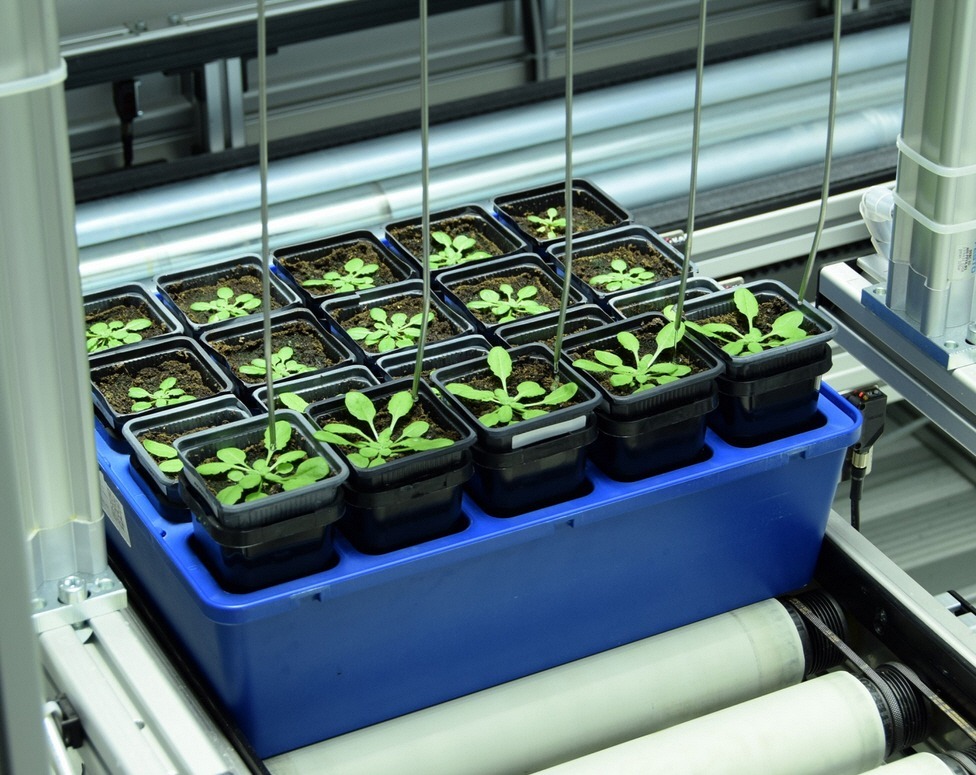
The high-precision watering and weighing system delivers both water and nutrients to plants throughout growth and during measurement cycles. Watering and nutrient delivery may be combined with automated weighing of plants in pots so that specific watering regimes may be programmed in software. These regimes may be used to impose drought stress or waterlogging of varying degrees of severity, imposed rapidly or gradually. Water application is gentle, without spillage or splashing of soil, and is adjustable for the different pot sizes. Schemes for watering to exact volume, relative volume or predefined weight can be pre-defined for single plants or groups of plants.
A suite of environmental sensors (humidity, temperature, light intensity, light quality) is supplied with the PlantScreen Compact System, so that meta-data can be stored and analyzed with the data acquired from the phenotyping unit.
A Comprehensive software package has been developed for system control, data acquisition, image analysis and database configuration. An intuitive graphical interface is used to control all hardware components actions, to control and monitor environmental conditions and to design experiments. A high-end industrial PC with touch screen is used for system control. Scheduling Assistant software with calendar functions allows the running of multiple experiments simultaneously. It also provides different modes for plant randomization, application of different experimental protocols per plant or group of plants, as well as plant handling regimes including dark/light adaptation and watering or nutrient delivery schemes.
All imaging data, as well as environmental and watering/weighing data, are stored in an SQL database, and are processed and available for inspection and analysis within seconds of acquisition. All raw and processed data can be analyzed easily by user-defined processing scripts.
PlantScreenTM Data Analyser software provides tools for data browsing, grouping, analysis, user-defined data reprocessing and export. Multiple clients can be connected to the database simultaneously, with different privileges assigned based on a built-in authentication mechanism. SMS and mail notification service is an integral part of the complete phenotyping system with 24-hour online support.
Key IT Features
- Comprehensive software package for system control, data acquisition, image analysis and data base configuration
- Plant Randomization
- Species-specific analysis
- Open database structure
- Remote access
- Automatic SMS and email notification service
- 24-hour online support service
- On-line environmental monitoring
In the search for beneficial traits that may allow crops to resist abiotic and biotic stresses, fast and accurate methods are required for efficient and effective plant high-throughput phenotyping. Such methods must involve automated measurements of plant morphology, biochemistry and physiology to determine potential and actual yield under a variety of monitored environmental conditions. With over 20 years’ of experience in designing instrumentation for plant imaging Qubit Phenomics with its partners, are now at the fore front of providing complete solutions for automated multidimensional plant phenotyping.
- High-throughput screening
- Morphology and growth assessment
- Nutrient management
- Photosynthetic performance
- Abiotic stress
- Pathogen interaction
- Trait identification
- Chemical screening
- Nutrient effects
